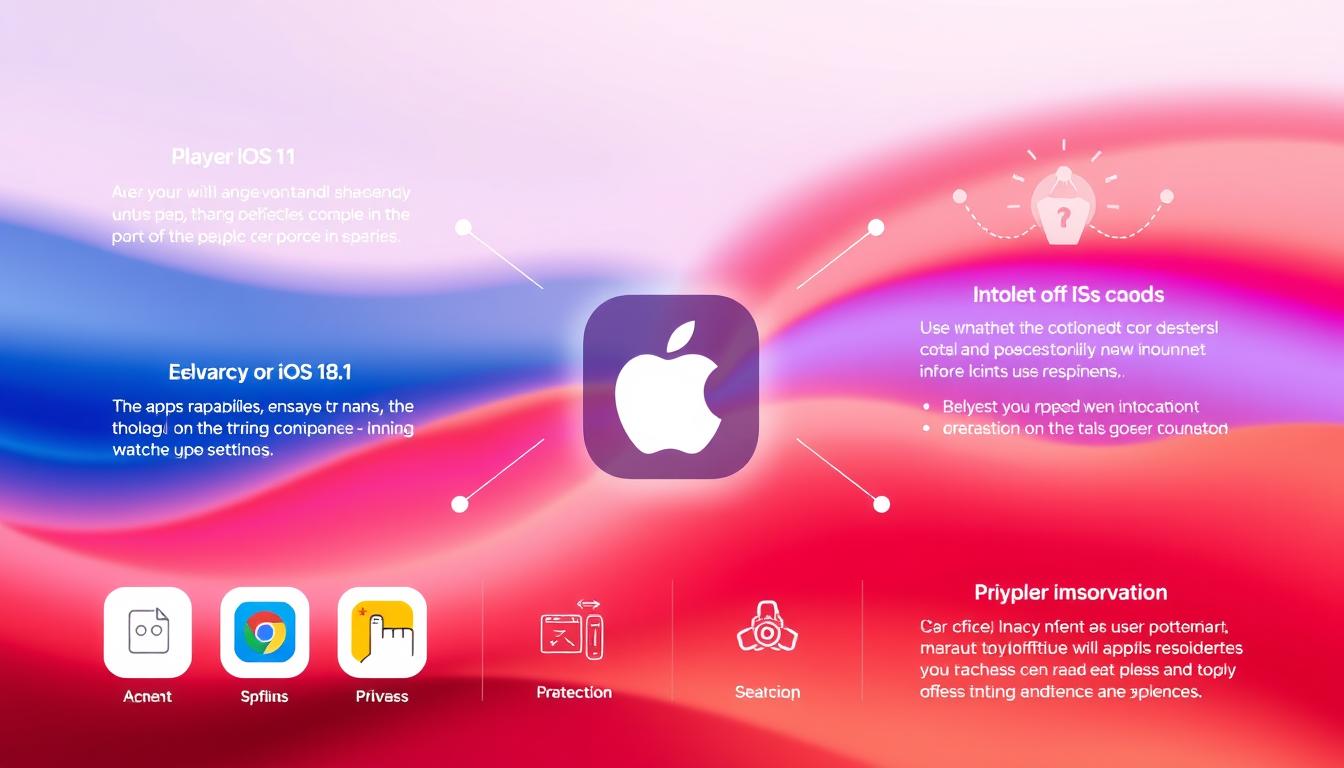Meta, the company behind Facebook, Instagram, and WhatsApp, is making a new search engine. It uses artificial intelligence to compete with Google and Bing. This new tool will answer questions about news and other topics in a friendly way.
Meta’s search engine will be different from others. It will use data from many places to give users what they need. This means users will get better search results than before.
Meta wants to change how we shop online. Its new search engine will let users see products in 3D. They can even try products in a virtual world before buying.
Key Takeaways
- Meta is developing an AI-powered search engine to challenge Google and Bing’s dominance in the search market.
- The new AI assistant will be integrated into Meta’s popular social media platforms, providing conversational answers to user queries.
- Meta’s web crawler aims to retrieve and synthesize data from various sources, offering a more personalized and user-friendly search experience.
- The company’s AI and augmented reality technology could disrupt the e-commerce industry, enabling interactive product displays and AI-powered recommendations.
- Meta’s move to reduce its reliance on Google and Bing reflects the company’s strategic efforts to diversify its technology offerings and strengthen its competitive position in the search engine market.
Meta Develops AI Search Engine to Compete with Google and Bing, Partners with Re
Meta Platforms, the company behind Facebook, Instagram, and WhatsApp, is making a new search engine. It uses artificial intelligence. This is to not rely so much on Google and Bing.
The AI search engine world is getting busier. OpenAI’s ChatGPT, Google, and Microsoft are all trying to be the best. Meta’s new search engine will give answers to questions about news and more. It uses Meta AI, which is on WhatsApp, Instagram, and Facebook.
Now, Meta uses Google and Bing for news and other info. But Meta wants to give users a better search experience. It plans to use its big data and smart language models for this.
Meta teamed up with Re, a top AI research company. This will help Meta’s search engine get better at understanding and finding information. This partnership is key for Meta’s AI search engine.
“Meta’s decision to develop its own search engine shows the company wants to be a big player like Google and Bing. As AI gets better, we’ll see more new search engines. This means users will have more choices and new things to try.”
Meta’s AI search engine will change the game. It will challenge Google and Bing’s top spot. We’ll see how users like this new search engine as the AI search engine battle gets fiercer.
The Rise of AI Search Engines
Artificial intelligence (AI) is changing how we search. AI search engines are becoming better than old keyword searches. They give us a search experience that’s more personal and easy to use.
Artificial Intelligence Search
AI search is more than just finding words. It uses natural language and learning to really get what we mean. These smart artificial intelligence search tools can answer complex questions. They find what we need and show us the right answers.
Language Models and Neural Networks
AI search engines use language models and neural networks. These help them understand human language and find important info in big data. They can do things like question answering and search engine optimization. They even give us personalized search results.
VinoVoss is a wine search engine that uses AI. It finds the perfect wine based on what you like. This shows how machine learning algorithms and information retrieval systems help us find what we want.
As data mining techniques and question-answering models get better, AI will change search even more. AI will understand and meet our needs in ways old search engines can’t.
“The future of search will be defined by AI’s ability to understand and anticipate user needs in ways that traditional keyword-based engines simply can’t match.”

How Meta’s AI Search Engine Works
Meta’s new AI search engine is changing how we find information. It uses information retrieval and natural language processing in new ways. It understands complex questions thanks to big language models and neural networks.
Information Retrieval and Natural Language Processing
Meta’s AI search engine is different from old search engines. It looks at the meaning of what you ask, not just the words. This makes it give answers that are more right for you.
This makes finding what you need better and more fun. It’s a big step forward in information access and knowledge retrieval.
Question Answering Systems and Conversational AI
Meta’s search engine can talk to you like a person. It uses machine learning models and data mining techniques to get what you mean. It answers your questions and talks back to make sure you get what you need.
“Meta’s AI search engine will empower users to find the information they need quickly and efficiently, thanks to its advanced question-answering models and conversational AI capabilities.”
As Meta keeps working on its AI search engine, things will get even better. You’ll find what you need in a way that feels just right for you. It’s making a big change in the ai search engine world.
The Role of Knowledge Graphs and Semantic Search
Meta’s AI search engine is getting better. It uses knowledge graphs and semantic search to find information better. This means it can give answers that are more relevant and make sense in the context of what you’re asking.
Knowledge graphs are like maps of information. They help the search engine understand what you’re looking for. This way, it can give you answers that are right on point.
Semantic search is about understanding what you really mean when you search for something. It uses AI to figure out your question better. This means you get answers that really match what you need.
By using knowledge graphs and semantic search, Meta’s AI search engine is getting ahead. It’s making search results better and more useful. This makes users happier and more likely to keep using it.
| Metric | Impact |
|---|---|
| Over 50% of searches result in no clicks due to knowledge graphs providing direct answers in the SERP | Reduced organic traffic |
| 35% increase in click-through rates from search engine results pages for an e-commerce platform that implemented a Knowledge Graph in 2024 | Improved search performance and user engagement |
| 20% uplift in organic traffic for an e-commerce platform after incorporating a Knowledge Graph in their SEO strategy | Enhanced visibility and brand authority |
| 25% increase in appointment bookings through organic search channels for a healthcare provider by implementing Knowledge Graphs | Increased conversions and customer acquisition |
Meta’s AI search engine is getting better because of knowledge graphs and semantic search. It’s making search more intuitive and personal. This is helping it compete with big names like Google and Bing.
Competitive Landscape: Meta vs Google and Bing
Meta is launching a new AI search engine. It’s up against big names like Google and Bing. These giants have worked hard on search algorithms and machine learning models.
Google is still the top dog, with 91% of the global market. But, its share has gone down. Bing’s share has gone up, thanks to Microsoft’s big investments.
Advanced Search Algorithms and Machine Learning Models
Google and Bing use smart data indexing and information access. They have lots of data and artificial intelligence. This helps them give users the best search results.
Meta’s search engine needs to be just as smart. It must use machine learning algorithms and information retrieval systems. Using its own data and data mining techniques is key.
“The search engine market is highly competitive, and Meta’s success will depend on its ability to develop innovative search algorithms and leverage its artificial intelligence capabilities to provide a unique and compelling user experience.”
Future of AI Search: Voice Search and Content Personalization
AI search engines are getting better. They will use voice search and content personalization a lot. Meta’s AI search engine will understand what you say and what you like. It will give you search results that fit you best.
Predictive analytics and knowledge graphs will help a lot. They will guess what you want to search for. This makes searching easier and more fun.
User Query Understanding and Personalized Search Results
AI search engines will get better at understanding what you mean. They will use natural language processing and machine learning. This means they can give you search results that really match what you’re looking for.
Predictive Analytics and Knowledge Graphs
Predictive analytics and knowledge graphs will make searching even better. They will guess what you want to find. This makes searching faster and more fun.
The future of searching is exciting. With voice search, personalized search results, and predictive analytics, searching will be amazing. Meta’s AI search engine needs to keep up to give you the best search experience.
| Feature | Benefit |
|---|---|
| Voice Search | Enables hands-free, natural language-based information access, improving user convenience and accessibility. |
| Personalized Search Results | Delivers tailored content and recommendations based on user preferences and history, enhancing relevance and user satisfaction. |
| Predictive Analytics | Anticipates user needs and provides proactive suggestions, improving the overall search experience and saving time for users. |
| Knowledge Graphs | Leverages semantic relationships to deliver more accurate and comprehensive search results, addressing user queries more effectively. |
“The future of search is not just about finding information, but about understanding and anticipating user needs. AI-powered search engines will revolutionize the way we access and interact with information.”
Conclusion
Meta is making a big move with its AI search engine. It wants to take on Google and Bing. Meta uses cool tech like natural language processing and question answering systems.
This tech makes searching more fun and personal. But, Meta will have to compete with Google and Bing. They have worked hard on their search skills.
The future of AI search is exciting. It will focus on understanding what users want. It will also give timely and relevant info.
Features like voice search and personalizing content will be key. Meta needs to stand out and offer something new and exciting.
The AI search world is changing fast. Big Language Models and generative AI are leading the way. This change will affect many areas, like creative work and software.
But, we need to think about jobs, misinformation, and ethics. As AI grows, we must handle these issues carefully.


